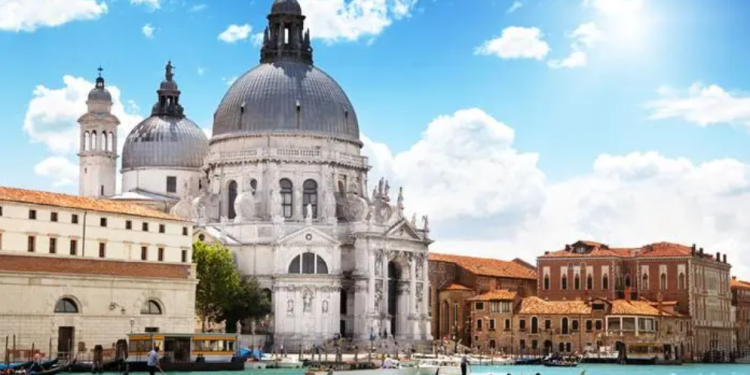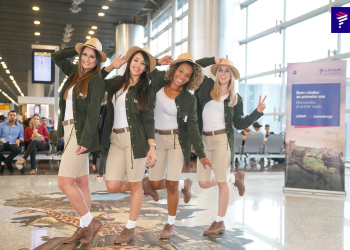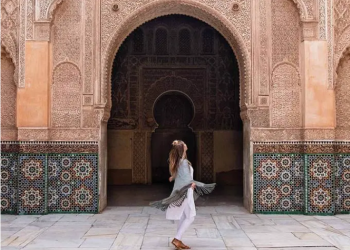1. Introduction
In today’s interconnected world, cultural immersion has become increasingly important as a means of fostering understanding, appreciation, and respect for diverse traditions and customs. One of the most enriching ways to immerse oneself in another culture is by experiencing traditional festivals firsthand.
2. Importance of Cultural Immersion
Cultural Understanding
Experiencing traditional festivals allows individuals to gain deeper insights into the customs, beliefs, and values of different cultures. By participating in rituals and celebrations, we can develop a greater understanding of the significance behind various cultural practices.
Personal Growth
Cultural immersion also promotes personal growth by challenging our perspectives and expanding our worldview. By stepping outside of our comfort zones and embracing unfamiliar traditions, we can cultivate empathy, tolerance, and open-mindedness.
3. Traditional Festivals: A Window into Culture
Diversity of Festivals
Around the world, traditional festivals take on a multitude of forms, reflecting the unique histories, religions, and traditions of different societies. From colorful street parades to solemn religious ceremonies, each festival offers a glimpse into the cultural fabric of its host community.
Cultural Significance
Traditional festivals often hold deep cultural and historical significance, serving as occasions for communities to come together and celebrate shared values and identities. These events may commemorate religious holidays, harvest seasons, historical events, or rites of passage.
4. Experiencing Traditional Festivals
Preparation
Before attending a traditional festival, it’s essential to research its customs, traditions, and etiquette to ensure respectful participation. Consider learning basic phrases in the local language and familiarizing yourself with any cultural taboos or customs.
Participation
Fully immersing oneself in a traditional festival often involves active participation in its rituals, ceremonies, and activities. Whether it’s donning traditional attire, sampling local delicacies, or joining in festive dances, embracing the spirit of the event can lead to transformative experiences.
5. Examples of Traditional Festivals Around the World
Chinese New Year
Celebrated by millions of people worldwide, Chinese New Year is a vibrant festival marking the beginning of the lunar new year. Traditions include family reunions, feasting on auspicious foods, and lion and dragon dances.
Diwali
Known as the Festival of Lights, Diwali is one of the most important Hindu festivals, symbolizing the triumph of light over darkness and good over evil. Diwali celebrations typically involve lighting oil lamps, decorating homes with colorful rangoli designs, and exchanging gifts.
Carnival
Carnival is a festive season celebrated in many countries around the world, with the most famous festivities taking place in Rio de Janeiro, Brazil, and Venice, Italy. Known for its elaborate parades, masquerade balls, and vibrant costumes, Carnival is a time of revelry and merriment.
Oktoberfest
Originating in Munich, Germany, Oktoberfest is the world’s largest beer festival, attracting millions of visitors each year. Highlights include beer tents serving traditional Bavarian brews, lively music and dancing, and carnival rides and games.
Day of the Dead
Celebrated primarily in Mexico, the Day of the Dead is a vibrant festival honoring deceased loved ones. Families create colorful altars adorned with marigolds, photographs, and offerings, and gather for feasts, music, and storytelling.
6. Benefits of Attending Traditional Festivals
Cultural Exchange
Attending traditional festivals fosters cultural exchange and mutual understanding between people of different backgrounds. By sharing in each other’s traditions and customs, individuals can forge connections and bridge cultural divides.
Building Connections
Traditional festivals provide opportunities for individuals to connect with local communities and forge meaningful relationships with fellow participants. Whether it’s bonding over shared experiences or collaborating on festival preparations, these connections can last a lifetime.
Creating Memories
Participating in traditional festivals creates lasting memories and experiences that enrich our lives. From witnessing breathtaking cultural performances to sharing laughter and joy with newfound friends, these moments become cherished souvenirs of our cultural journey.
7. Conclusion
Experiencing traditional festivals around the world offers a unique opportunity to immerse oneself in the rich tapestry of human culture. By embracing the sights, sounds, and flavors of these celebrations, we can gain a deeper appreciation for the diversity and beauty of the world we share.

FAQs After The Conclusion
- How can I find traditional festivals to attend while traveling?
- Research online travel guides, cultural event calendars, and local tourism websites to discover traditional festivals happening during your travels. Additionally, consider seeking recommendations from locals or fellow travelers.
- What should I wear to a traditional festival?
- It’s essential to respect the cultural norms and dress codes of the festival’s host community. When in doubt, opt for modest and conservative attire that covers the shoulders, knees, and cleavage. Avoid wearing clothing with offensive slogans or symbols.
- Are traditional festivals suitable for children?
- Many traditional festivals welcome families and children, offering kid-friendly activities, performances, and entertainment. However, it’s essential to research the festival’s atmosphere and suitability for children beforehand and ensure their safety and comfort during the event.
- Can I participate in traditional festival rituals as a visitor?
- While some traditional festival rituals may be open to participation by visitors, it’s essential to approach them with humility, respect, and sensitivity to cultural traditions. Seek permission from organizers or local participants before joining in any rituals or ceremonies.
- What are some tips for respectful behavior at traditional festivals?
- Respectful behavior at traditional festivals includes following local customs and traditions, refraining from disruptive or disrespectful behavior, and treating participants and sacred sites with reverence and respect. Be mindful of cultural differences and adapt accordingly.
- How can I support local communities during traditional festivals?
- Supporting local communities during traditional festivals can involve purchasing goods and services from local vendors, volunteering to assist with festival preparations or cleanup, and respectfully engaging with local residents to learn about their customs and traditions.
- Are there any safety precautions to consider when attending traditional festivals?
- When attending traditional festivals, it’s essential to prioritize personal safety by staying aware of your surroundings, avoiding risky behavior or situations, and following any instructions or guidelines provided by festival organizers or local authorities.
- What should I do if I have dietary restrictions or allergies at a traditional festival?
- If you have dietary restrictions or allergies, it’s advisable to research the festival’s food offerings in advance and communicate your dietary needs to food vendors or organizers. Alternatively, consider bringing your own snacks or meals to ensure you have safe and suitable options to enjoy.







